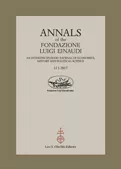This article looks at the prevailing theories of ‘soft power’, mostly deriving from the pioneering work of Joseph S. Nye, and suggests an additional approach. While Nye’s is moralistic, foreign-policy oriented, and intented to benefit the biggest states, the vision suggested here shows that by applying a non-moralistic ‘force of example’ analysis, other dimensions of their existence, and other states, can be brought into play. The suggestion here is that the force of example is what connects hard power to influence, and the most enduring, influential examples a society can offer the world come from its models of change, innovation, ‘progress’. America, from this perspective, remains the sole soft power superpower, because so many elements of its society produce innovations which the rest of the world must come to terms with. The other major cases presented here are China, Russia and the EU, with discussion of the efforts of each to link their hard power to their real or aspirational influence. In conclusion attention is paid briefly to Britain and the Gulf States, as these are nations which have openly embraced versions of the ‘soft power’ formula with particular energy and investments.



